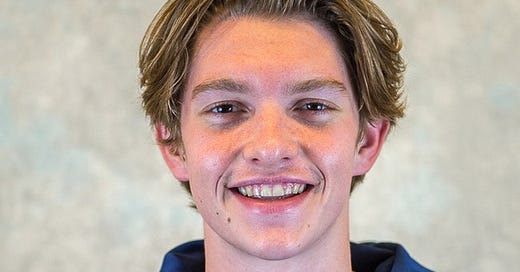Hallucinations
If you work with large language models you routinely encounter the issue known as 'hallucinations'. Essentially, these models are programmed to provide answers. When they encounter topics outside their training data, they tend to fabricate responses. This phenomenon arises from their core functionality: they make probabilistic predictions about the next word in a sentence. While effective for many applications, this approach can lead to inaccuracies. The models might produce statements with no factual basis, yet present them in a manner indistinguishable from verified, accurate information.
In the realm of swim data, we face similar challenges. It's tempting to attribute this solely to SwimCloud, but the issue also exists in USA Swimming data. Both SwimCloud and USA Swimming utilize a sophisticated system to collect swim meet times. These systems efficiently upload data for display on their user interfaces.
However, when there's a malfunction somewhere at the local level, say in the connection between the timing equipment and the meet software, inaccuracies propagate through the system, appearing as valid SwimCloud data. The rapid, automated transfer of times to SwimCloud or USA Swimming datasets is a feature of this system. That is the system operating as it is supposed to and as with LLMs, it is when the system is doing what it is designed to do that it also does the most damage to its own integrity.
There are two problems here. First, these incorrect times are almost always at the top of the table, hindering efforts to quickly scan the table and see who has the top spots. One has to keep a mental inventory of the problems in the table and try to recall, as you search through, whether (say) that time in Men’s 200 Fly is legit (it’s not).
Second, all this creates a pervasive uncertainty. When encountering any reasonably fast time, a nagging voice in your head whispers: did an actual person post that time or is it just another 'hallucination'?
Racing Club de France
Alex Pollack last competed for the inelegantly-named Racing Club de France during the 2021-22 season. His swam alongside current Emory teammate Henri Bonnault. They appear to have been the strongest swimmers on that team.
In the United States, it's common to have access to swimmers' data stretching back through their high school years. However, there are no SwimCloud records for Mr. Pollack before the 2021-22 season. Consequently, we lack insight into his typical range of events.
200 Free
And that’s significant because, although he appears to be a backstroker, he currently leads the division in the 200 Free, clocking in at 1:39.49 — about 0.08 seconds faster than his teammate, Crow Thorsen.
But is that time accurate? It certainly seems so. We reviewed the HyTek data for the meet, and it presented as follows.
We have seen garbage HyTeks before, and they generally don’t look like this. This just looks like a really weird swim. Alex Pollack was in 5th place after 100 yards, trailing the leader by a solid 0.70 seconds. Then everyone else in the event basically went 52:00+ the rest of the way while Mr. Pollack went 50.38, winning the event by 0.87 seconds.
That did happen, right?
100 Back
Mr. Pollack is currently in 5th place in 100 Back, and curiously has the fastest time that was not a relay start. We don’t think we understand why 7 of the top 10 times this season in 100 Back are relay starts. Last year at this time, 2 of the top 10 were relay starts. Randomness, we suppose.
But Mr. Pollack’s 100 Back time does not feel random. Just really intriguing. It’s a 49.25. Mr. Pollack has never gone any better than 49-mid, and that only in February and March. Has Mr. Pollack reached another level?
200 Back
Our normal assumption is that Mr. Pollack is good at 200 Back. But the time he just posted is a 1:46.65. That’s a lock down invite time to Nationals.
It is not his personal-best. He owns a 1:46.36, but he swam that at 2023 University Athletic Association Championships, in February. The rhythm of the season matters. These are Mr. Pollack’s 200 Back swims in early November over the past two seasons.
Emory Invitational, Nov. 3, 2023, 200 Back: 1:46.65
Emory Invitational, Nov. 4, 2022, 200 Back: 1:52.601
To our untrained eyes, that looks like an improvement of some significance.
Congratulations Alex Pollack: You are D3SO’s Eagle of the Week.
A 1:52.60 on Nov. 4, 2022 was not some freakishly bad swim for Mr. Pollack. It was in-line with expectations and just another step on in his progression that led to him dropping time all season leading-up to conferences, where he A-finaled.






It was a real swim- swam in a very Alex Pollack way.